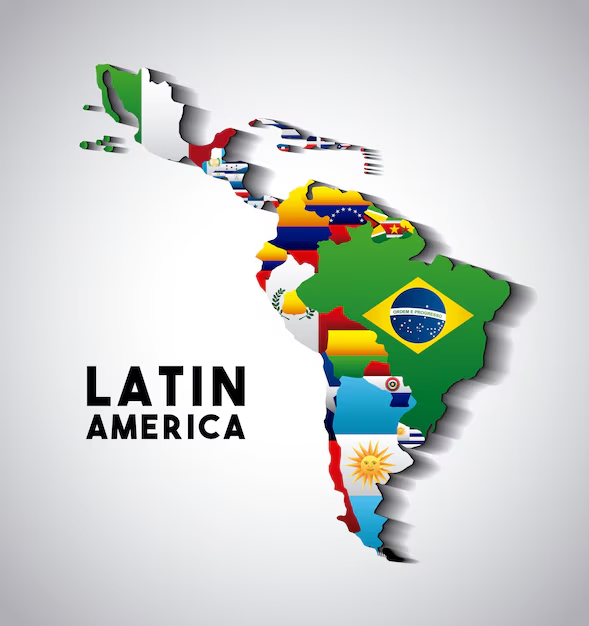Navigating the Rise of the Elderly Population: Challenges and Solutions in South America
South America is experiencing a dramatic surge in its elderly population, a demographic shift driven by increasing life expectancies and declining birth rates. This presents both significant opportunities and considerable challenges for nations across the continent. This article delves into the critical issues surrounding elderly care and the vital role of robust social support systems in ensuring the well-being of South America's aging citizens, also highlighting the potential for collaboration with North America.
The Growing Elderly Population: A Demographic Tide
Advancements in healthcare and improved living standards have contributed to a steadily rising elderly population in South America. This demographic shift necessitates a comprehensive reassessment of existing healthcare infrastructure, social support networks, and economic policies to meet the evolving needs of this growing segment of the population. The sheer scale of this demographic change demands proactive and innovative strategies.
Addressing Healthcare Infrastructure Deficiencies
The expanding elderly population places an unprecedented strain on existing healthcare infrastructure. Significant investment is crucial to ensure accessible, high-quality healthcare services for all senior citizens. This includes expanding access to geriatric care specialists, modernizing medical facilities, and implementing telehealth initiatives to improve remote access to care. Furthermore, addressing disparities in access to care between urban and rural areas is paramount.
Forging Strong Social Support Networks: Combating Isolation and Loneliness
Maintaining a high quality of life for elderly individuals requires robust social support systems. These systems must go beyond basic healthcare and encompass access to social services, community programs, and robust support networks designed to combat the pervasive issues of isolation and loneliness among the elderly. Investing in community centers, fostering intergenerational programs, and promoting volunteerism are crucial elements of this strategy.
Ensuring Financial Security in Old Age
Financial insecurity poses a major threat to the well-being of many elderly South Americans. Governments and communities must collaborate to develop and implement effective policies and programs that provide adequate financial support, ensuring a dignified retirement for all seniors. This includes strengthening pension systems, exploring options for universal basic income for seniors, and providing targeted assistance to vulnerable elderly populations.
Bridging Generations: Fostering Intergenerational Connections
Promoting intergenerational relationships is not merely a social imperative; it's a powerful tool for enhancing the quality of life for both younger and older generations. Initiatives that encourage interaction between young and old can foster mutual understanding, combat loneliness, and provide valuable learning opportunities for both groups. Mentorship programs, intergenerational volunteering projects, and shared community activities can all contribute to stronger societal bonds.
Creating Age-Friendly Communities: Designing for Inclusivity
Building age-friendly communities requires a multifaceted approach. This includes ensuring accessible infrastructure, reliable transportation options, and recreational activities tailored to the needs and abilities of older adults. Such an approach ensures that elderly individuals can actively participate in community life and maintain their independence for as long as possible.
Supporting Caregivers: A Crucial Untapped Resource
The burden of caregiving often falls disproportionately on family members, leading to significant stress and burnout. Providing comprehensive support and resources for caregivers is essential not only to improve the well-being of the elderly but also to protect the mental and physical health of their caregivers. This support could include respite care, training programs, and access to counseling services.
Harnessing Technology for Improved Elderly Care
Technological advancements offer exciting possibilities for improving the lives of the elderly. Telemedicine, assistive devices, and smart home technologies can greatly enhance healthcare delivery, promote independent living, and mitigate the challenges of aging. Investment in these technologies and training programs for their effective use is crucial.
Prioritizing Mental Health in the Elderly Population
Mental health issues such as depression and anxiety are significantly prevalent among the elderly. Addressing this requires increased investment in mental health services specifically designed for seniors, along with public awareness campaigns to destigmatize mental health concerns and promote help-seeking behaviors.
The Power of Volunteerism and Community Engagement
Encouraging volunteerism and community engagement can have transformative effects on the lives of elderly individuals. Participating in community activities provides a sense of purpose, combats social isolation, and allows the elderly to share their valuable life experiences and knowledge.
Governmental Policy and Action: A Necessary Catalyst
Governments in South America play a critical role in addressing the challenges facing the aging population. Implementing comprehensive policies that prioritize elderly care, strengthen social support systems, and guarantee financial security is a paramount responsibility for policymakers. This requires long-term strategic planning and investment.
The Potential of North-South Collaboration
North and South America can learn immensely from each other's experiences and best practices in elderly care. Collaboration and knowledge-sharing can foster more effective and comprehensive strategies for addressing the challenges of an aging population. This collaborative approach can lead to innovative solutions beneficial to both regions.
Empowerment Through Education: Promoting Self-Advocacy
Empowering elderly individuals to actively participate in managing their health, finances, and overall well-being is crucial. Providing educational resources and support enables informed decision-making and promotes a more fulfilling and independent life.
Collective Action for a Brighter Future
Addressing the challenges of elderly care and social support systems in South America demands a collective effort. By recognizing the unique needs of the aging population, implementing comprehensive strategies, and fostering collaboration between individuals, communities, and governments, South America can build a brighter future for its senior citizens. Let's work together to create a society that values and respects its elderly population.



